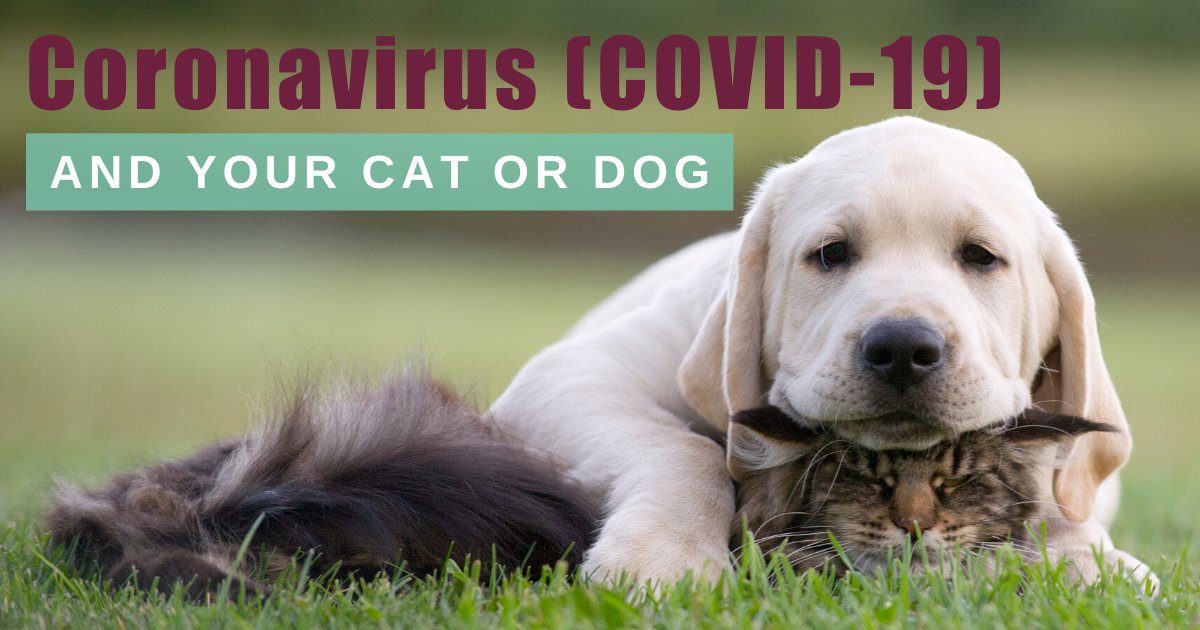As the novel Coronavirus makes it’s way to the United States, I’ve had many pet parents reach out to me with concern on how this may affect their cat or dog. To top it off, on February 28th, 2020 a Pomeranian tested positive for the Coronavirus (COVID-19).
At first, it was thought that this dog most likely had viral contamination from an infected person. The pup was placed in quarantine and as the days went on, health officials confirmed that this dog did test low positive for COVID-19. On March 17th, 2020, it was confirmed that this dog passed away. However, we don’t know that the pup died of Coronavirus. A 17 year old Pomeranian most likely had underlying heart and/or respiratory disease. At this time, it’s not believed that COVID-19 is commonly transmitted to pets, however there are a few recorded cases and much research to do.
The media coverage of the Coronavirus is scary and news outlets are excellent at fear mongering. However, as a public health officer, I do see that this pandemic is problematic for people, and potentially for their pets.
It’s my job to keep pet parents informed on ways to reduce risk to their pet’s health. While data and information is constantly emerging on this new virus, let’s cover what we do know about how it affects our dogs and cats, and how we can stay prepared as the weeks move on.
Here is what we do know about pets and Coronavirus (COVID-19):
- The infected dog in Hong Kong tested positive after his guardian fell ill with the virus.
- There is no evidence at this time that our pets can pass the virus to people.
- Dogs infected with COVID-19 appear to have no clinical signs of the virus.
- As of April 8th , 2020,, there has been a confirmed case of COVID-19 in a cat (in Europe) and a tiger at the Bronx zoo.
Tips to stay prepared
- Supplies may be temporarily hard to come by.
My nurses and I have been going through the patients in our practice, considering what may go on backorder in the coming months. As human hospitals use more supplies, products for veterinary use may become harder to find. Drug and medical supply manufacturers may temporarily divert resources to other products. Consider having an extra bottle of necessary medications and supplies.
- Get extra pet food.
Having an extra bag of your pet’s food is probably a good idea. This is especially true if they rely on a particular brand or formulation of food, or have a sensitive stomach. Trade and manufacturing may be temporarily affected by this pandemic.
- Wash your hands after handling or petting dogs and cats
This is really always good advice! While there’s no evidence that our pets can infect people with COVID-19, there are plenty of other disease they can transmit. Washing your hands after petting or holding a pet is always encouraged. They can also act as a fomite, which simply means they can carry infection on them while not necessarily being infected. I would avoid touching other people’s pets while practicing social distancing.
If you or a loved one is unfortunate enough to contract the virus, it would be important to quarantine your dog or cat too, out of an abundance of caution.
- Stay healthy, grounded and happy.
I exercise, take probiotics and CBD everyday to help reduce stress and increase immunity. My pets are on the same regimen! I use HempRx Forte and Bacillus CoagulansVET.
Personally, I am trying to limit my exposure to the news and social media, while also staying informed. This is not the apocalypse and we don’t need to live in our basement for the year. Still, let’s stay prepared and cautiously optimistic that we and our loved ones will not be affected by this new virus.
I will be sure to update this blog as new information comes out regarding the Coronavirus and our pets. In the meantime, here are a few other resources you can use for information regarding the novel Coronavirus.
Big hugs during this unknown and potentially overwhelming time. Let me know what questions you have in a comment below!
With love,
Dr. Angie


